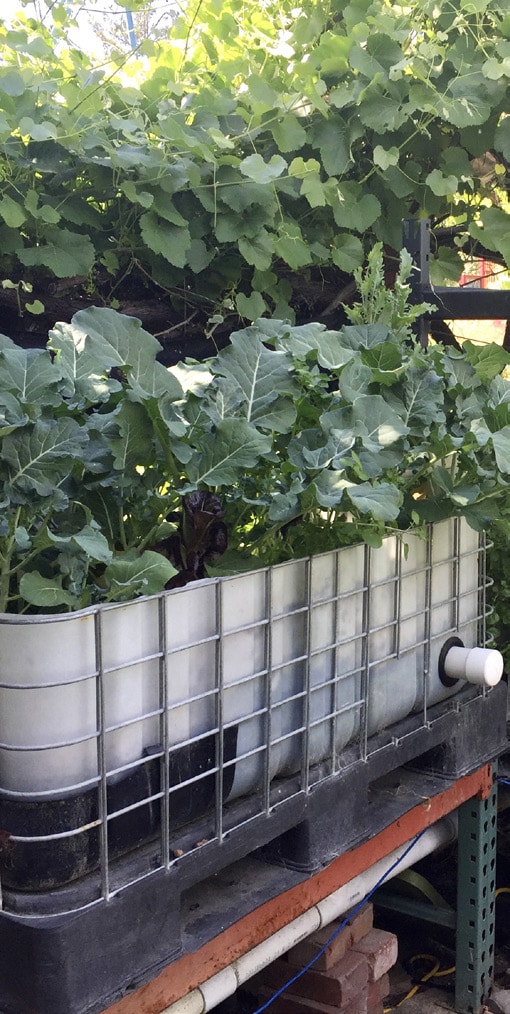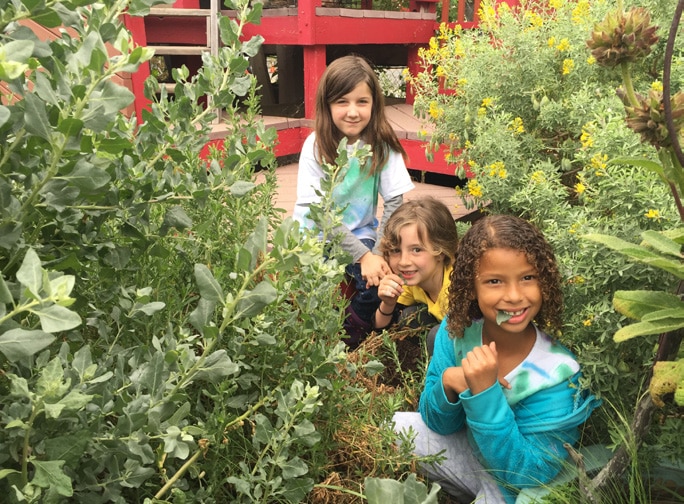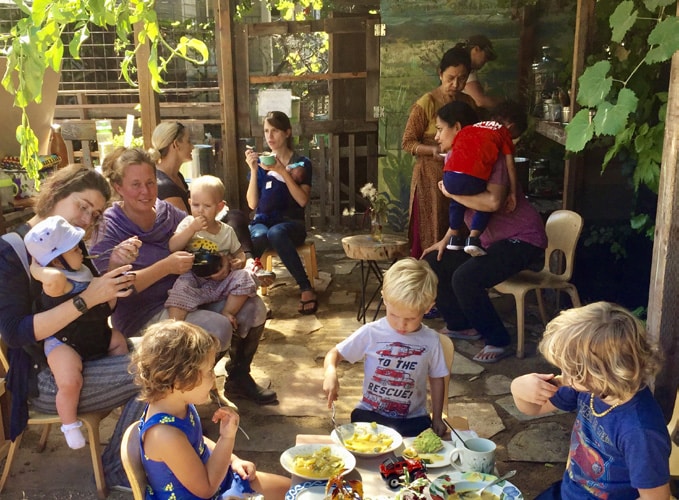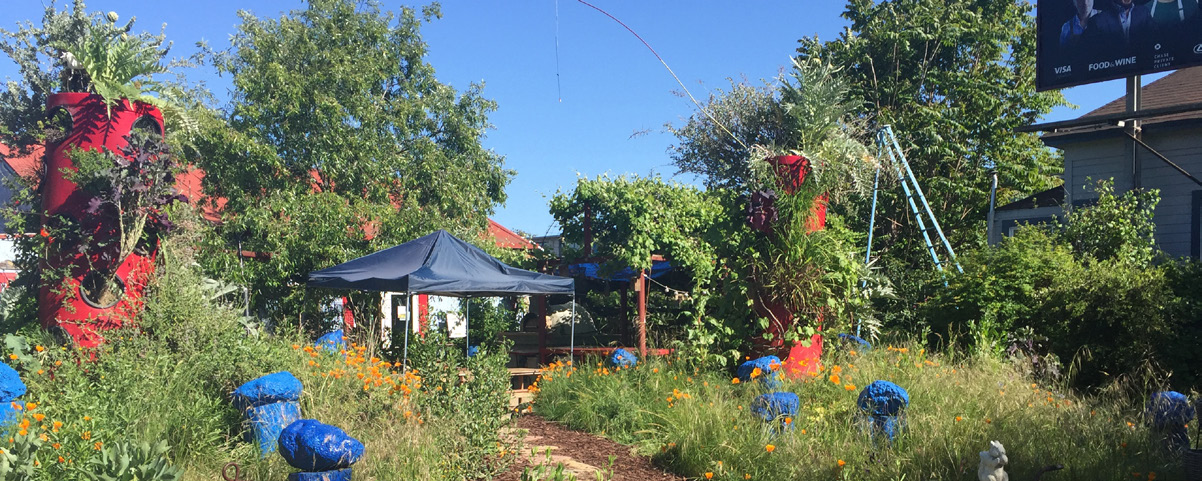C U S
a modelWe are no longer a rural species: over half the world’s people live in urban areas, and many have forgotten how to grow their own food. We believe this knowledge is a human birthright, and we must restore it where people actually live.
A Framework for Sustainable Cities
CUSA model for future land use, the Center for Urban Sustainability (CUS) embodies a vision for the current gardens at 76 Race Street in midtown San Jose, where California Native Garden Foundation (CNGF) currently operates. In partnership with local institutions, the site can be sustainably developed to host:
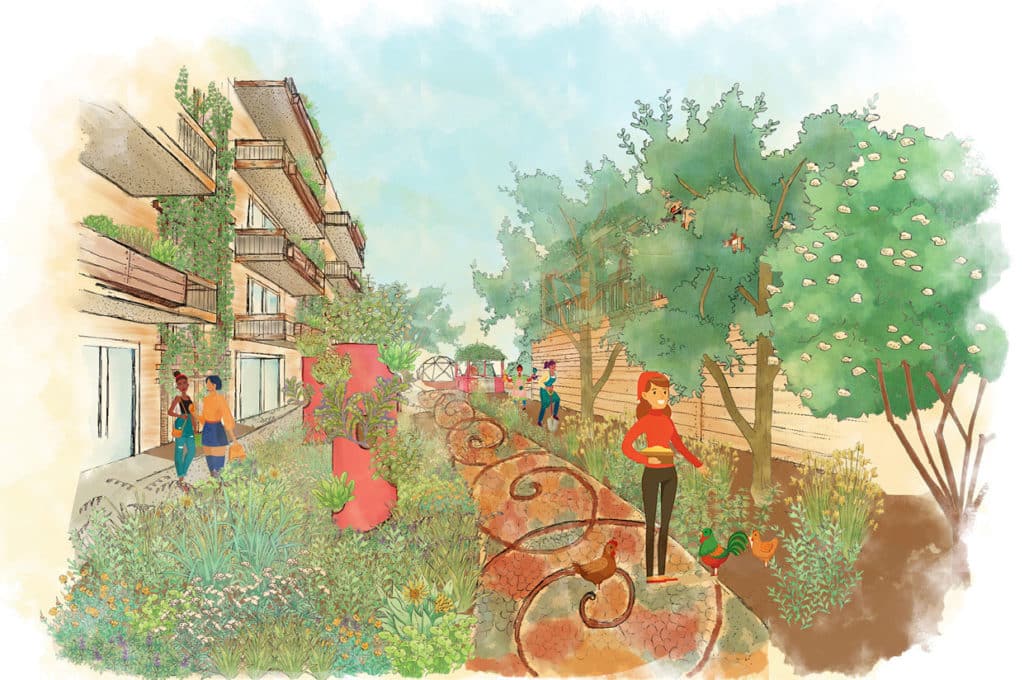 • LEED-certified affordable student housing
• LEED-certified affordable student housing
• California native plant-based Culinary Arts Institute
• Outdoor education center
• SITES-certified native, regenerative landscape
• Regenerative Organic Agriculture and aquaponics
• Sustainable job training
• A venue to host community events and programs
The CUS will act as the hub for a network of knowledge and resource sharing between students, scientists, landowners, educators, and other community members.
The site will utilize renewable energy, onsite stormwater water management, rainwater collection, greywater reuse, aquaponics, repurposed materials, and low embodied carbon building materials such as rammed earth and mass timber. The design maximizes both indoor and outdoor uses and can easily be integrated into the Alameda Urban Village, a key part of San Jose’s 2040 general plan.
CNGF is collaborating with the scientific community to integrate ongoing hypotheses and peer reviewed published research that will continuously supplement and inform our land use model. The CUS will be the first ecology and food sovereignty based developments of CNGF’s Build 25×25 Initiative, a network of 25 urban agricultural community centers that utilize regenerative urban land use practices to be built by 2025. The Center will be an example for other communities, landowners, and developers to follow.
Redefining Careers and Education
CUSCNGF is developing seven sustainable job tracks with the Workforce Institute of San Jose Evergreen Community College District. Classes for these new tracks – which include early childhood and outdoor STEAM education, ecological land management, plant-based culinary arts, and ecological engineering – will all be held at the CUS. Aligning with CNGF’s mission, these tracks will provide affordable, accessible training for college students to acquire skills that will allow their generation to solve the most critical and urgent issues of our time.
Continuing a Legacy of Community
CUSThe CNGF garden has been a key part of the surrounding community for 20 years, teaching students of all ages and backgrounds about regenerative land use practices, food access, and native ecology. Over the years, the local California native plants in the garden have grown into key habitat for many types of wildlife, including birds, pollinators, and insects.
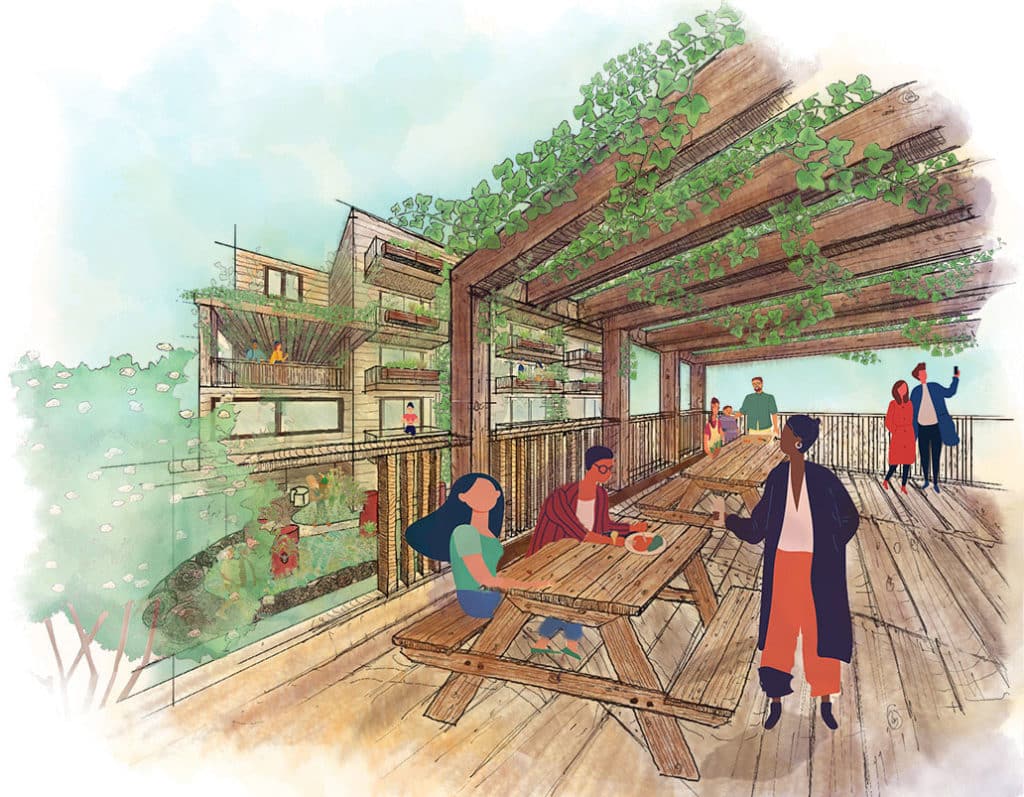 The garden is the first model of an Environmental Laboratory for Sustainable and Ecological Education (ELSEE), an outdoor teaching garden and model for 10,000 California public schools. ELSEE was designed, built and managed to gain SITES Certification as part of the Sustainable SITES pilot project and meets 200 benchmarks for urban sustainability. These programs were matched with lesson plans and curriculum traditionally taught indoors. Our lessons and project-based learning activities fulfilled CREEC (California Regional Environmental Education Community), as well as the Core Curriculum and Science standards for grades pre-K through 8.
The garden is the first model of an Environmental Laboratory for Sustainable and Ecological Education (ELSEE), an outdoor teaching garden and model for 10,000 California public schools. ELSEE was designed, built and managed to gain SITES Certification as part of the Sustainable SITES pilot project and meets 200 benchmarks for urban sustainability. These programs were matched with lesson plans and curriculum traditionally taught indoors. Our lessons and project-based learning activities fulfilled CREEC (California Regional Environmental Education Community), as well as the Core Curriculum and Science standards for grades pre-K through 8.
Through the sustainable redevelopment of the garden, we are seizing the opportunity to expand our community and initiate a network of regenerative land use and ecological resiliency throughout Santa Clara County.
Land Justice as Social Justice
CUSIf we are to change the current trajectory of climate change and invest in solutions that create a positive future for all people, we must change the way we use land in urban spaces.
The CUS functions like a plant – most of the resources it needs to support itself can be found onsite. Fruits and vegetables grown around the site will feed those living in the affordable student housing and provide produce for the Culinary Arts Institute. Permeable hardscapes will recharge water aquifers, water will be reused in the landscape, and native landscapes will take precedence over agriculture, employing aquaponics and polyculture grow beds to grow non-native food plants intensively.
By reconnecting with ecological processes, reintroducing multi-functional landscapes into the urban area, and providing accessible higher education in sustainable fields of work, we will begin to repair the damage done by the current methods of development and heal our communities.
Here is a video by Dr. Sanhita Datta, a math and science division faculty member at San Jose City College. She has been working for several years with California Native Garden Foundation: Center for Urban Sustainability. In the video, she portrays how her Environmental Science curriculum overlaps with CNGF.


